Recessed lights need to go. I love recessed lights, but most of them create a ridiculous amount of heat in attics, which can lead to ice dams. Until I started performing infrared inspections in attics, I never understood how much heat recessed lights contributed to attics, but now my eyes are wide open. The main problem I find with recessed lights is that they’re not insulated well enough. I once did an ice dam troubleshooting inspection at a home in Maple Grove and found forty-six recessed lights sticking up into the attic. There’s your problem.
A standard recessed light will stick up into the attic about seven inches. If an attic has fourteen inches of loose-fill fiberglass insulation, that means you end up with only seven inches of insulation over something that needs more insulation than anything else.
The combination of minimal insulation and hot light fixtures shows up clear as day using an infrared camera.
The images above show how much heat leaks through the insulation above an IC-rated, airtight recessed light with a 65-watt incandescent bulb. IC rated means it’s safe to have insulation directly in contact with the light, but it’s not synonymous with airtight. You can usually tell if a recessed light is airtight just by looking inside it; if there are a bunch of holes inside the housing, it probably isn’t airtight.
But even if a recessed light is airtight-rated, this doesn’t mean it’s airtight. You can still see daylight through those things, and even the label claims it’ll leak less than 2 cubic feet per minute.
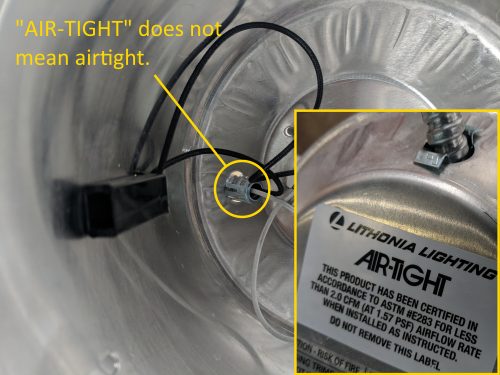
If you can see light pouring through on the attic side, it’s definitely not airtight. All of these little holes in the housing are passageways for heated air to escape into the attic; they’re called attic bypasses.
An awesome alternative to recessed lights
Having said all this, I don’t think recessed lights are truly ‘evil’, but they sure can cause a lot of problems, and there seems to be very little understanding of this in the building trades. My advice is to skip recessed lights entirely; instead, go with canless wafer downlights. They’re slightly thicker than drywall, they’re extremely easy to install, they generate no heat, they’re LED so they use little energy, and they’re a piece of cake to replace if something goes wrong.
I’ve heard that these can be a challenge to install with thicker materials like lath and plaster, so I don’t literally mean recessed lights should be completely eliminated. Just mostly.
What if you already have recessed lights?
If you already have “airtight” recessed lights in your home, you probably need way more insulation installed on top of them. This is usually quite simple to do, but without an infrared camera, it might take a little time to locate all the lights.
If you already have non-airtight recessed lights sticking up into your attic, don’t worry; there’s a fix for this. You can purchase pre-made recessed light covers like the CanCoverIt, which will seal off the can light and let you pile insulation on top. I installed several of these at my last house to help cut down on the heat leaking up into my attic space. In the first photo, I cut down the cover because it was much taller than it needed to be.
This next photo shows the cover installed, before I piled a bunch of insulation on top of it.
And finally, if you’re still using incandescent light bulbs, swap them out with LED bulbs. LEDs use far less electricity and they run way cooler. Also, many LED retrofits can help to air-seal the light right at the ceiling.

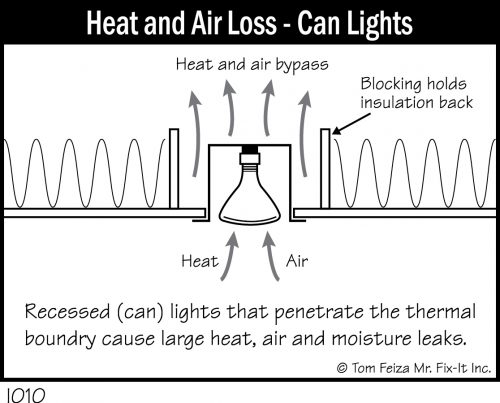
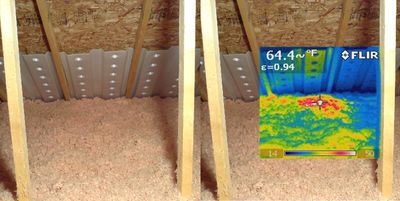
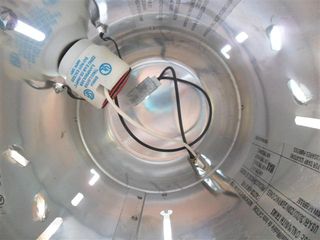
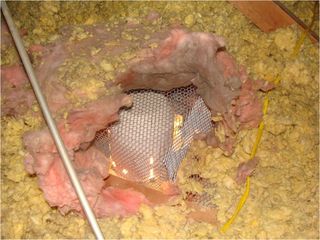
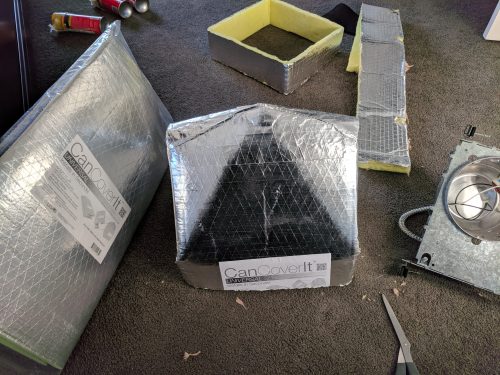
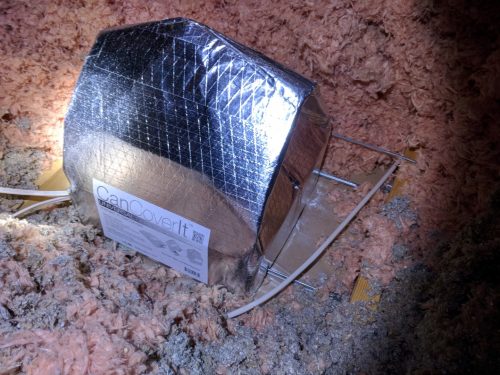
Scott J. Zeiger
February 11, 2023, 7:38 am
Another awesome video Reuben. Good job. Thank you.
Reuben Saltzman
February 12, 2023, 2:19 pm
Thanks, Scott!